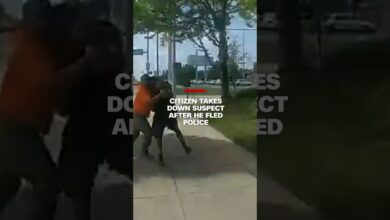

AUSTIN – A federal judge late Wednesday temporarily blocked enforcement of a Texas abortion law that effectively bans the procedure, siding with the federal government in a lawsuit over the ban.
"This Court will not sanction one more day of this offensive deprivation of such an important right,” U.S. District Judge Robert Pitman said at the conclusion of a 113-page ruling that blocked Senate Bill 8.
Republican Gov. Greg Abbott signed the legislation, known as the "fetal heartbeat" bill, into law in May. It bans abortions once a fetal heartbeat is detected, usually around six weeks of pregnancy and before many people realize they are pregnant.
There are no exemptions in cases of rape or incest.
Abortion providers say the legislation would restrict 85% of abortion procedures in Texas. The law is one of the most direct challenges on the boundaries of the U.S. Supreme Court's 1973 landmark Roe v. Wade decision that legalized abortion.
Similar six-week abortion laws in Georgia, Kentucky and other states have been blocked by federal courts.
But last month, the Supreme Court left the law to take effect. Over the objections of three liberal associate justices and Chief Justice John Roberts, the high court declined to block enforcement of the law in a 5-4 ruling.
Associate Justice Sonia Sotomayor called the decision "stunning," in a dissenting opinion joined by Associate Justices Stephen Breyer and Elena Kagan.
The Texas law was different from other restrictive abortion laws because instead of relying on officials to enforce the law, private citizens are allowed to sue abortion providers and anyone involved in "aiding and abetting" abortions.
This could include anyone driving a person to an abortion clinic, among other situations. Anyone who is successful in suing is entitled to $10,000, according to the law.
Abortion rights advocates say the law is written in a way to prevent federal courts from striking it down, in part because it’s hard to know whom to sue.
The Department of Justice said last month it would protect people's access to abortion in Texas despite the law. Attorney General Merrick Garland issued a statement saying that the agency would "continue to protect those seeking to obtain or provide reproductive health services pursuant to our criminal and civil enforcement" of a law known as the Freedom of Access to Clinic Entrances Act.
"The department will provide support from federal law enforcement when an abortion clinic or reproductive health center is under attack," Garland said. "We have reached out to U.S. Attorneys’ Offices and FBI field offices in Texas and across the country to discuss our enforcement authorities."
The statements came shortly after the Supreme Court allowed Texas' controversial abortion law to take effect. The law, one of the most restrictive in the country, bans abortions once a fetal heartbeat is detected, usually around six weeks of pregnancy and before many people realize they are pregnant. There are no exemptions in cases of rape or incest.
Contributing: Mabinty Quarshie and Courtney Subramanian
Source link







